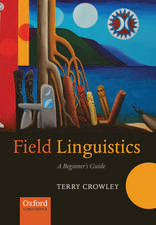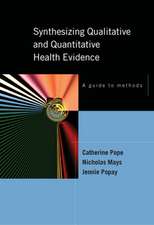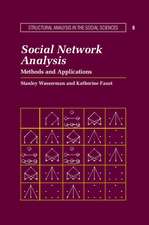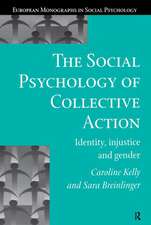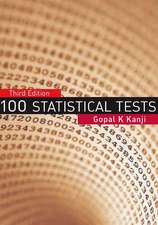Fuzzy-Set Social Science
Autor Charles C. Raginen Limba Engleză Paperback – aug 2000
In this innovative approach to the practice of social science, Charles Ragin explores the use of fuzzy sets to bridge the divide between quantitative and qualitative methods. Paradoxically, the fuzzy set is a powerful tool because it replaces an unwieldy, "fuzzy" instrument—the variable, which establishes only the positions of cases relative to each other, with a precise one—degree of membership in a well-defined set.
Ragin argues that fuzzy sets allow a far richer dialogue between ideas and evidence in social research than previously possible. They let quantitative researchers abandon "homogenizing assumptions" about cases and causes, they extend diversity-oriented research strategies, and they provide a powerful connection between theory and data analysis. Most important, fuzzy sets can be carefully tailored to fit evolving theoretical concepts, sharpening quantitative tools with in-depth knowledge gained through qualitative, case-oriented inquiry. This book will revolutionize research methods not only in sociology, political science, and anthropology but in any field of inquiry dealing with complex patterns of causation.
Ragin argues that fuzzy sets allow a far richer dialogue between ideas and evidence in social research than previously possible. They let quantitative researchers abandon "homogenizing assumptions" about cases and causes, they extend diversity-oriented research strategies, and they provide a powerful connection between theory and data analysis. Most important, fuzzy sets can be carefully tailored to fit evolving theoretical concepts, sharpening quantitative tools with in-depth knowledge gained through qualitative, case-oriented inquiry. This book will revolutionize research methods not only in sociology, political science, and anthropology but in any field of inquiry dealing with complex patterns of causation.
Preț: 280.54 lei
Nou
Puncte Express: 421
Preț estimativ în valută:
53.69€ • 58.30$ • 45.10£
53.69€ • 58.30$ • 45.10£
Carte tipărită la comandă
Livrare economică 23 aprilie-07 mai
Preluare comenzi: 021 569.72.76
Specificații
ISBN-13: 9780226702773
ISBN-10: 0226702774
Pagini: 370
Ilustrații: 20 line drawings, 47 tables
Dimensiuni: 152 x 229 x 15 mm
Greutate: 0.5 kg
Ediția:1
Editura: University of Chicago Press
Colecția University of Chicago Press
ISBN-10: 0226702774
Pagini: 370
Ilustrații: 20 line drawings, 47 tables
Dimensiuni: 152 x 229 x 15 mm
Greutate: 0.5 kg
Ediția:1
Editura: University of Chicago Press
Colecția University of Chicago Press
Notă biografică
Charles Ragin is professor of sociology and political science at the University of Arizona. He is the author of Redesigning Social Inquiry:Fuzzy-Sets and Beyond and The Comparative Method: Moving Beyond Qualitative and Quantitative Strategies.
Cuprins
List of Illustrations
List of Tables
Preface
Acknowledgments
Introduction
Part One: Diversity-Oriented Research
1. Diversity-Oriented Research: Between Complexity and Generality
2. Constituting Populations
3. Studying Cases as Configurations
4. Causal Complexity
5. The Logic of Diversity-Oriented Research
Part Two: Fuzzy-Set Methods
6. Fuzzy Sets and the Study of Diversity
7. Using Fuzzy Sets to Constitute Cases and Populations
8. Fuzzy Sets and Necessary Conditions
9. Using Fuzzy Sets to Study Sufficient Conditions
10. Causal Complexity: Applying Fuzzy-Set Methods
11. Fuzzy Sets and the Dialogue between Ideas and Evidence
Bibliography
Index
List of Tables
Preface
Acknowledgments
Introduction
Part One: Diversity-Oriented Research
1. Diversity-Oriented Research: Between Complexity and Generality
2. Constituting Populations
3. Studying Cases as Configurations
4. Causal Complexity
5. The Logic of Diversity-Oriented Research
Part Two: Fuzzy-Set Methods
6. Fuzzy Sets and the Study of Diversity
7. Using Fuzzy Sets to Constitute Cases and Populations
8. Fuzzy Sets and Necessary Conditions
9. Using Fuzzy Sets to Study Sufficient Conditions
10. Causal Complexity: Applying Fuzzy-Set Methods
11. Fuzzy Sets and the Dialogue between Ideas and Evidence
Bibliography
Index

